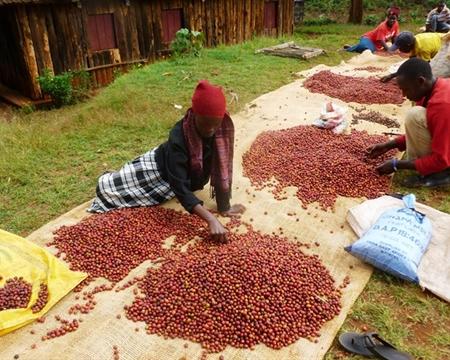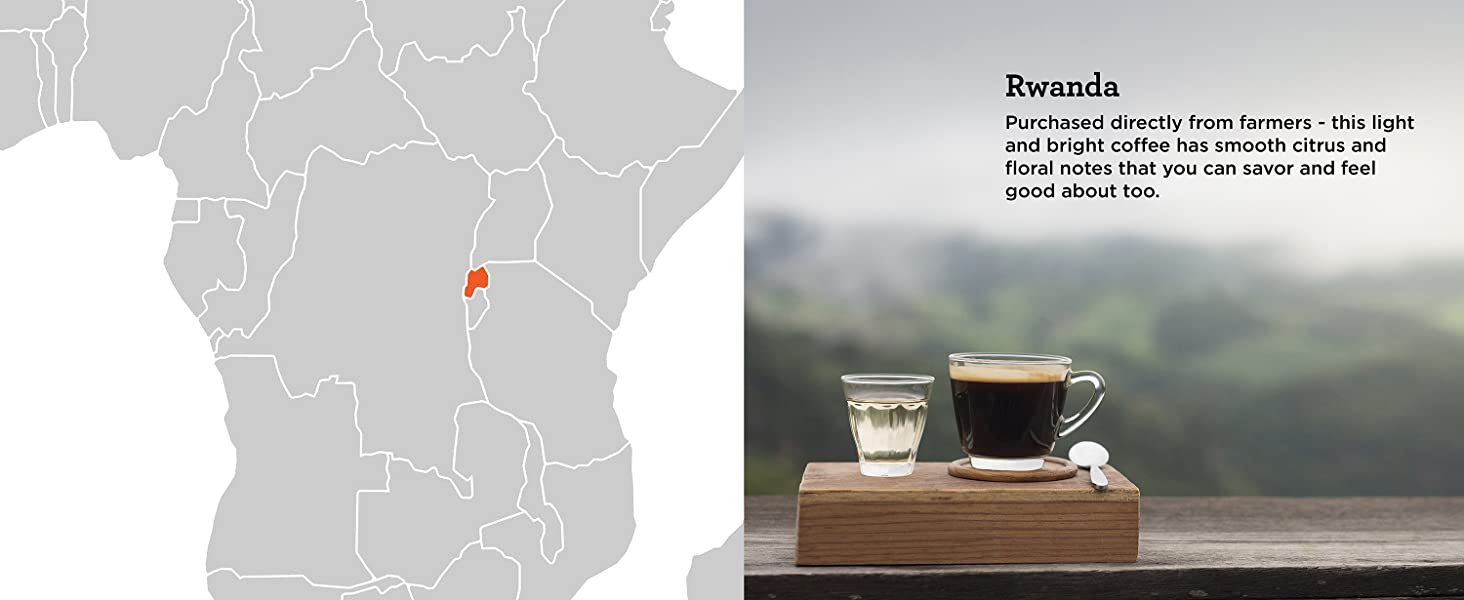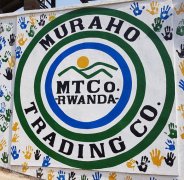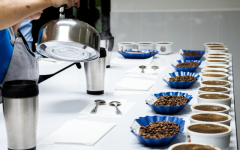Coffee origin affects the taste of boutique coffee beans. Rwanda single coffee brands recommend climate-friendly.
The origin of coffee has a great influence on the taste of coffee beans. The quality of the soil, the altitude, and even the rainfall in an area determine what kind of coffee can be grown there and the taste of the coffee produced. Coffee producing areas are often classified as mainland-based categories, which is a good start. South American coffee tastes different from African coffee, while Indonesian coffee is quite different from both.
There are a lot of Rwandan coffee beans in front of the street coffee hand-made coffee items.

In a broad sense, African coffee is famous for its higher acidity and more fruity flavor than other regions. Ethiopia, Kenya and Tanzania have been producing high-quality coffee for years, but recently, Rwanda has joined the competition. Rwanda has the high altitude and soil quality necessary to produce delicious boutique coffee, so it is a bit surprising that they are not well known as coffee producers.
When you buy Rwandan coffee, you are bound to wonder what brand to buy.

Number one is westrock Coffee, Rwanda.
Westrock Coffee's Rwanda Select Reserve Gourmet Dark Roast captures the most desirable characteristics of premium Rwandan coffee; it provides you with rich and full-bodied flavor. This is the real definition of African coffee. This single-source coffee has a full-bodied, long-lasting cup with intense smoked cedar flavors and a hint of blackcurrant. From the dry aroma of crisp apples to the wet aroma of light lemon, coffee is sure to delight your senses and satisfy your taste buds.

AmazonFresh Direct Trade Rwanda
This 100% Arabica coffee is affordable and can be traded directly. Light roasting gives the whole coffee a delicate hint of citrus flavor.
Rwanda bean Ikerekezo-Vision
Rwanda is proud of the beautiful and balanced beans growing in the fertile volcanic soil of our equatorial mountains. This single-source variety of bourbon Arabica coffee beans is a classic example of our hometown's unique taste harmony. It starts with the aroma of earth, blooms with the smell of nutmeg, and then gradually turns into a smooth, satisfying finish. Enjoy a cup and share the pride of the farmers, who echo your enthusiasm for the rich rewards of your work. It is planted and harvested in Rwanda and baked locally in Portland, Maine, USA. The brand will return 50% of its profits to farmers. Rwanda bean coffee is roasted in small batches to ensure quality control and freshness.
Cubico Rwanda Kopakaki Coffee
100% Rwanda Kopakaki Coffee-grows in the Karongi district of western Rwanda. Misozi Kopakaki is grown by more than 800 small farmers in the Karongi district of western Rwanda. In order to produce the best coffee possible, farmers in the region their coffee, resources and knowledge by setting up a cooperative called Kopakaki.
Misozi and Kopakaki cooperatives are proud to receive Fairtrade certification to demonstrate transparency and fairness in their growing communities.
Kirkland Signature Rwanda whole bean coffee
The brand works with trusted third-party certification and creates its own certification compact by design Climate commitment friendly use of sustainability certification to highlight products that support our commitment to help protect the natural world.
Important Notice :
前街咖啡 FrontStreet Coffee has moved to new addredd:
FrontStreet Coffee Address: 315,Donghua East Road,GuangZhou
Tel:020 38364473
- Prev

History of coffee production and cultivation in Rwanda Coffee hometown people's Security of the Coffee Market in Rwanda
The history of coffee cultivation in Rwanda is very tortuous. In 1904, German missionaries introduced coffee to Rwanda. Exploited by Belgian colonists, coffee grew slowly and peaked in the 1930s. During this period, mainly large quantities, low-grade coffee production. The instability of colonial rule led to the Rwandan genocide in 1994. In a period of 100 days
- Next

World's best Rwandan coffee beans Growing conditions Double washed coffee beans Flavor Taste characteristics
Despite being one of the top 30 coffee producing countries in the world, you know very little about Rwandan coffee. They are relatively new to the fine coffee space and have had to overcome some major setbacks. Nevertheless, the geographical climatic conditions of this beautiful country are perfect for growing quality coffee beans. Go into Rwandan coffee, just like the country it comes from, with its depth and complexity.
Related
- Detailed explanation of Jadeite planting Land in Panamanian Jadeite Manor introduction to the grading system of Jadeite competitive bidding, Red bid, Green bid and Rose Summer
- Story of Coffee planting in Brenka region of Costa Rica Stonehenge Manor anaerobic heavy honey treatment of flavor mouth
- What's on the barrel of Blue Mountain Coffee beans?
- Can American coffee also pull flowers? How to use hot American style to pull out a good-looking pattern?
- Can you make a cold extract with coffee beans? What is the right proportion for cold-extracted coffee formula?
- Indonesian PWN Gold Mandrine Coffee Origin Features Flavor How to Chong? Mandolin coffee is American.
- A brief introduction to the flavor characteristics of Brazilian yellow bourbon coffee beans
- What is the effect of different water quality on the flavor of cold-extracted coffee? What kind of water is best for brewing coffee?
- Why do you think of Rose Summer whenever you mention Panamanian coffee?
- Introduction to the characteristics of authentic blue mountain coffee bean producing areas? What is the CIB Coffee Authority in Jamaica?

